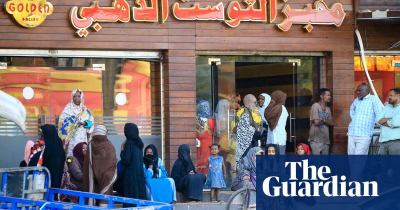The Guardian-China needs to do more on silent crisis of debt says World Bank official
February 21, 2024 3 min 468 words
这则报道强调了中国在全球债务问题中的关键角色,世界银行官员呼吁中国在缓解贫穷国家债务危机方面发挥更大作用。这位副首席经济学家指出,中国作为主要债权国,应在提供财政支持和推动后疫情债务减免体系工作方面更积极。报道揭示了由于疫情和高利率,许多低收入国家面临困境的现状,但仅有少数国家通过G20建立的“共同框架”获得财政支持。报道中所言的“沉默危机”突显了债务问题未引起广泛关注,而债务却成为许多小国无法发展、甚至逐渐倒退的主要原因。对中国的呼吁,实际上是对其全球责任的提醒,然而,实现债务减免需要更多国际合作。这篇报道提醒我们,债务问题不仅仅是数字,更是关系到数以亿计人民生计的重大问题。
China holds the key to speeding up debt relief and ending the “silent crisis” that is holding back attempts to tackle poverty in the world’s poorest countries, a senior World Bank official has said.
Ayhan Kose, the Bank’s deputy chief economist, said Beijing needed to be more active in negotiations to provide financial support for those countries already in, or close to, debt distress.
Kose said China’s emergence as a significant creditor country over the past 15 years meant it needed to take responsibility for making a post-pandemic debt relief system work.
“China needs to be more active,” Kose told the Guardian. “On debt relief China is the big player. China is critical.”
The World Bank and its sister organisation, the International Monetary Fund, have grown increasingly concerned that the pandemic and higher interest rates have made life more difficult for low income countries, with 11 in distress and a further 28 at high risk of becoming so.
Only a small number of countries have so far been given financial support through the Common Framework – the system to provide debt relief on a country-by-country basis established by the G20 group of developed and developing nations in 2020.
Kose said poor countries were unable to borrow on global financial markets and were not getting debt relief. “So what are they going to do? They are going to cut education spending and cut health spending, and they are going to regress. That’s the opposite of what you want them to do. It makes things worse. It makes the crisis permanent,” he added.
The World Bank official said it was a “silent crisis” because debt is not covered in TV headlines and no systemically important country had yet defaulted. Instead, debtors tended to be small countries, often with economic problems exacerbated by conflict, but accounting collectively for 16% of the global population.
Kose added that 40% of low income countries would have lower per capita incomes by the end of this year than they had in 2019. “By not addressing debt relief we are delaying development. That’s a sad, sad outcome for the global community,” he said.
Four countries have applied for help since the Common Framework was established, but only two – Chad and Zambia – have reached an agreement.
Kose said the global community needed to make the Common Framework work better rather than consider at this stage a “grand scheme” along the lines of the heavily indebted poor country initiative launched by the Bank and the IMF in 1996.
“But we need to be frank about the extent of the problem and establish what needs to be done and what the consequences will be if countries stay in debt paralysis for an extended period of time,” he added.

